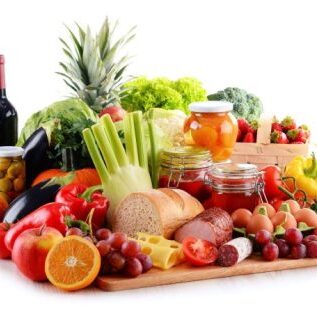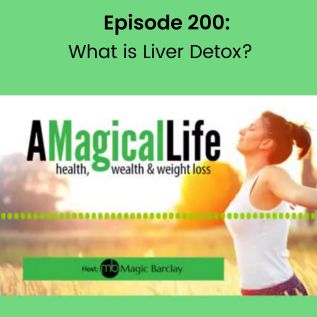
Top 10 Unhealthy Health Foods
The Top 10 Unhealthy Health Foods – In this blog, we’re uncovering the truth about the top 10 unhealthy health foods that aren’t necessarily healthy for everyone.
With endless buzzwords like health foods, organics, power foods, and superfoods flooding your daily life, it’s hard to know what’s genuinely beneficial. Fat loss, weight loss, symptoms – the confusion is real. Let’s cut through the noise and reveal why these so-called ‘healthy’ options might not be as wholesome as they seem for everyone.
It can be nearly impossible to know if you are doing the right or the wrong thing for your health anymore. People have been eating to improve health for centuries, so why exactly is it such a dilemma now?
Now, we have convenience foods, fast foods, and packaged meal services that are prepared and delivered to the door. We have access to foods that are ‘out of season’, foods that are dried or frozen, and foods that have crossed many continents and countries, leaving their original status as local foods and becoming our ‘superfoods’. So why is it so disappointing that we eat these top 10 health foods and we’re getting more overweight, more unwell, and more confused?
What if I told you that there are three areas of your body, 3 body systems that govern the outcome of each food you consume, each medication you take or each supplement you swallow?
The simple fact that a food is known as a health food does not mean that it is a healthy food for you. Let’s take a look closely at what the top 10 unhealthy health foods are and why.
1.Tomatoes
Number 1 on the list of Top 10 potentially Unhealthy ‘Health Foods is tomatoes. Tomatoes are a fruit, they are also part of the nightshade family. That is, they often flower, fruit, and seed at night. Nightshades include potatoes, eggplant, and peppers. Many can be toxic but our favourite nightshades have become staple foods in our diets. The most common is the humble tomato.
Tomatoes are amazing feats of nature. They contain a carotenoid called lycopene which gives them their abundant red colour. Lycopene is an antioxidant that helps protect against cell damage – in some people. Here’s the clincher with lycopene. Depending on the type of immune system you have, lycopene can be your best friend or your worst enemy. You got it, there are different types of immune systems. In fact, so far, science has identified 4 of them with many more being explored.
Your immune system type depends on a number of factors and how you identify which type you have is a process that a Functional Health Solutions Practitioner can run through with you. But back to trusty old lycopene- yes it is an antioxidant but it can also be detrimental to your immune system, your lymphatic system, and your neural system. This may display as weight gain, brain fog, coughs and colds or even fluid retention.
2.Coffee
Have you ever felt energised by the cup of coffee in the morning then suddenly you hit the wall, your energy saps and you ‘need’ another cup? Just as with your tomato, your daily coffee can be a trigger for your type of immune system to go a little crazy. Coffee is a vaso-dilator. The caffeine in coffee expands the veins in your body, allowing them to send though more blood. This can be experienced by that ‘rush’ of energy or, on the flipside, it can be a drudge to cope with. Coffee is one of the most highly recognised commodities to harbour mould too. A major turning-point in your life, such as childbirth, can switch your response to coffee in an instant. It may be the compounds within it, it may be the immune type you are (also switchable during pregnancy) or it may be a mould sensitivity. Your Functional Health Solutions Practitioner can help you work it out.
3.Turmeric
Ah, turmeric. That golden hero that has come into vogue as our golden latte. A spice that has been used for healing for centuries and yet, it can be what doubles you over in pain. Yes, turmeric is the most powerful anti-inflammatory we know of these days. Turmeric possesses curcumin, an anti-inflammatory and anti-oxidant. Curcumin can be your strongest ally in everything from weight loss to cardiovascular health. It can also increase your fat storage (depending on whether your immune system is anabolic or catabolic), slow your lymphatic system flow, and cause neural or nerve confusion. Curcumin may be fine for you one day and send you to bed with heart palpitations the next. The changes will be subtle but you will notice them.
4.Onions
A staple food in many households. Onions are a tasty and economical vegetable that brings any meal to life. Have you ever eaten onion only to wake the next day with a splitting headache? Quercetin is the flavonoid that causes that. It is also found in berries, buckwheat, and kale (to name just a few). Your immune type will react to the Quercetin and let you know if it is for you or not. The humble onion can cause anything from a headache to a migraine, from a few extra kilos to a whole spare tire. In fact, onions are vegetables that can also interact with many other things and be for or against you. Luckily, they are easy to identify as a source of health or a source of misery.
5.Pineapple
Pineapple is so good for you! Yes, good for you. It stimulates thyroid activity and captures the sun and the vitamin D-stimulating processes from the sun. Known as Sunshine’s fruit, pineapple is a fruit that makes us all think of happiness. We think of summer, or a pina colada, or a yummy fruit salad when we look at a luscious ripe pineapple. Did you know though, it contains high amounts of bromelain? Bromelain is a compound that is used for reducing swelling (inflammation), especially of the nose and sinuses, after surgery or injury. However, Bromelain can also carry calcium clusters through the body and deposit them at your joints. Ouch, anyone here got arthritis? Yes, the most natural anti-inflammatory can cause inflammation. Your immune system type will again govern this, as will the health of your lymphatic system. Is anyone seeing a pattern?
6.Soy
Grabbing that soy latte is just as dangerous for you as a regular latte. We hear so much about the impact dairy has on the body, from high estrogen intake to the ethical concerns of dairy. Soy is just as damaging. 94% of soybeans are actually GMO (Genetically modified organisms). Apart from the fact that soy is treated with a high amount of chemicals including pesticides that are advanced neurotoxins (they kill your brain and nerves off), soy is a phytoestrogen. That is, it is a plant-based estrogen that contains two isoflavones, genistein and daidzein, which act like estrogen. When they are mixed with the hazardous chemicals used in soy production, they rampantly mimic the body’s natural estrogens and block and confuse estrogen receptors. This causes an extreme imbalance and leads to a higher rate of breast and cervical cancer. Guys, you don’t get away with this ‘health food’ either. Take a walk down the street and you will notice an increase in men with ‘moobs’ (men’s breasts). Yes, men are now being diagnosed with breast cancer more and more. Steer away from the soy.
7.Cocoa
Undoubtedly, one of the world’s most highly traded commodities is the humble cocoa bean. If you have a sweet tooth, you most likely are always ready for a piece of chocolate. Just as with coffee, the cocoa bean harbours more than the goodness we know it for. A carrier of mould, it can be attributed to respiratory infections and other food sensitivities. Again, your immune system type will react to it as with many other health foods in this article. An easy one to eliminate from your diet, to see if you feel better without it, and yet a highly addictive food that will leap off the shelves at you during the grocery shopping. Cocoa is a comforting substance but not because it loves you. In fact, the compounds in cocoa (theobromine and caffeine) can directly impact your respiratory, circulatory, and neural systems. Like a warm, comforting hug that ends up being a giant python constricting you. Cocoa also contains resveratrol (see grapes for more).
8.Ginseng
Energy giver, lifeblood of Chinese medicine. Remember, we looked at immune system types and healthy foods? Chances are if you fall asleep after a coffee, ginseng is your friend. Alternatively, if coffee wires you, ginseng will send you to the doctor with anything from headaches to restless legs syndrome. So how will you know if it’s for you? A Functional Health Solutions Practitioner can help you. Ginseng does not carry the dangers of many other superfoods but it can complicate your life, as it is incompatible with many over-the-counter and prescription medications and supplements.
9.Coconut oil
The oil of choice for many to cook with. With the highest smoke point of all oils, that is, the one that won’t burn as quickly, coconut oil contains many compounds that can heal you. Great for oil-pulling, it helps draw bacteria from your mouth. Certainly preferred over toxic mouthwashes. Coconut oil also contains monolaurin, the most powerful anti-viral we know of at this time. However, if your body is not ready for the positive side effects of such a powerful food, life can get very scary very quickly. Go slow with the coconut oil, respect it for all its goodness but be wary of what it unlocks for you to deal with.
10.Grapes
Number 10 on the Top 10 Unhealthy ‘Health Foods list are grapes. A seasonal delight indeed. Or are they?
Grapes contains resveratrol. A complex compound that is known as a stilbenoid. A type of natural phenol, and a phytoalexin produced by several plants in response to injury or when the plant is under attack by pathogens, such as bacteria or fungi.
Resveratrol is found in the skin of grapes and is most abundant in red wine. The humble grape is a food that can release enough resveratrol to activate the fight against any fungus or bacteria in its host. You’re the host! Humans are exposed to hundreds of thousands of bacteria daily, not to mention fungi. The resveratrol in your humble bunch of grapes will seek these out waging war almost immediately but not all bacteria inside your body are bad. Resveratrol cannot discriminate, it may actually lower your body’s defenses enough to create an imbalance resulting in illness.
Beyond General Health Advice: Customizing Your Diet for Optimal Immunity
So, you just pushed away your coffee, chocolate, and fruit platter reading this article. Maybe you’re asking how you will know which of these Top 10 Unhealthy Health Foods are right for you. How will you know what type of immune system you actually have and where to go from here?
Well, from here you need to take a deep cleansing breath through your nose and back out through your nose. Yes, your nose! Breathing through the mouth invites more bacteria from the environment into your body. No need to panic, rush off anywhere to see someone, or start Dr-internetting it all. Your local Functional Health Solutions Practitioner can help you and will be happy to answer your burning questions.
For now, start with eliminating some of these from your diet and take note of the differences you feel. Your body will happily tell you as much as it can. Try each one for 14 days and do not stress yourself about it. A healthy body is a happy body and after all, isn’t that what we all want from our ‘health foods’?
Want an even easier approach to eating the right foods for you? A way that cuts out all the guesswork and trial and error?
Are you tired of the endless trial-and-error and guesswork in choosing the right foods for your unique body needs? Learn about our innovative worldwide service that identifies your unique immune type. Gain expert insights and personalized recommendations to transform your eating habits effortlessly.
To find out your immune type and speak to a Functional Health Solutions Practitioner you can either book our Immune System Identification service in our other individualised services or take advantage of our free root cause analysis service to find out more ways you can optimise your health.



